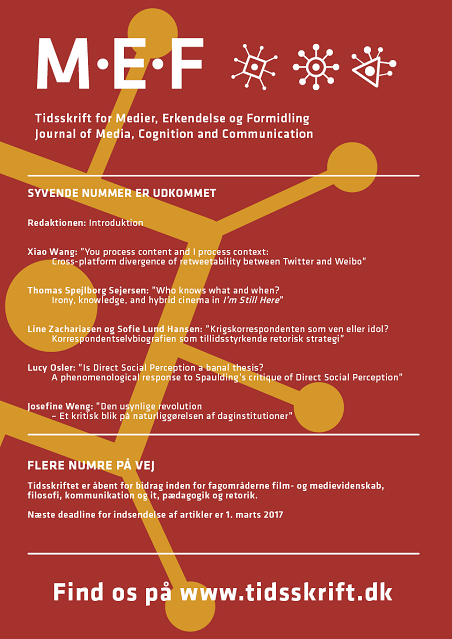Is Direct Social Perception a banal thesis? A phenomenological response to Spaulding’s critique of Direct Social Perception
Resumé
RESUMÉ
Direkte Social Perception (DSP) hævder, at vi kan erfare visse mentale tilstande hos andre. Spaulding påstår, at de eneste mentale tilstande, som kan blive direkte perciperet, er motor-intentioner og aktuelle følelser, og konkluderer derfor, at DSP er en banal tese. Jeg argumenter for, (i) at Spaulding ikke tilstrækkeligt har demonstreret, at DSP bør begrænses til M-intentioner og aktuelle følelser, og at (ii) selv inden for Spauldings begrænsede forståelse kan DSP heller ikke karakteriseres som banal. Jeg slår til lyd for, at opfattelsen af DSP som banal er en misforståelse af DSP’s sande radikalitet som en del af den fænomenologiske fremstilling af social kognition.
ABSTRACT
Direct Social Perception (DSP) claims that we can directly perceive some mental states of others. Spaulding asserts that the only mental states that can be directly perceived are motor-intentions and occurrent emotions and therefore concludes that DSP is a banal thesis. I argue that (i) Spaulding has not sufficiently demonstrated that DSP should be limited to M-intentions and occurrent emotions and (ii) that even upon Spaulding’s restricted account, DSP cannot be properly deemed banal. I suggest that to view DSP as banal is to misunderstand its true radicality as a component of the phenomenological account of social cognition.
Downloads
Publiceret
Citation/Eksport
Nummer
Sektion
Licens
Creative Commons: CC by-nc-nd


